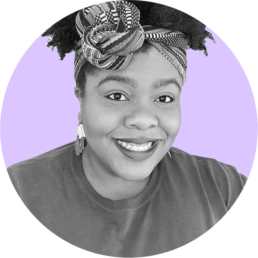Photo Credit: Center for Reproductive Rights
WHAT'S ON THE LINE IN THE YEAR AHEAD
The past four years have seen seismic changes to the reproductive rights and justice landscape. There’s the steady, continuing rollback to our rights—with a record number of conservative lifetime appointments to the federal judiciary and the most conservative Supreme Court in recent history (including a brand new anti-abortion justice who is also against contraception and IVF). There’s the continuing crisis in maternal health, with an intensifying maternal death rate that hits Black and brown women hardest.
But there’s also action—both on the part of people everywhere determined to speak up, and organizations big and small fighting for justice in the courts, the medical establishment, and our world more broadly. So what should you—what should all of us—know about what’s ahead in 2021, and how to get involved?
To answer that question, The Meteor Fund partnered with the Center for Reproductive Rights, Women Engaged and Changing Woman Initiative on a two-part workshop focused on reproductive rights and justice. We’ll bring you highlights here—and you can stay in the loop for future events by signing up for updates.
So let’s dive in. Our first workshop—Reproductive Rights and Justice: What’s Ahead in 2021—focused on what’s to come in the abortion landscape. Moderated by Dahlia Lithwick of Slate, it featured speakers Fajer Saeed Ebrahim of the Center for Reproductive Rights, a global legal advocacy organization dedicated to advancing reproductive rights, and Michelle Wilson of Women Engaged, a Georgia-based organization focused on helping Black women actualize policy initiatives and social transformation. They got into everything from the coming wave of laws affecting young people’s rights to Amy Coney Barrett’s take on fertility treatments. Here are some of the key learnings:
Pop quiz: Reproductive health, rights and justice. Know the difference?
Michelle Wilson breaks down the difference between these movements this way: “Reproductive health deals with direct services: conversations with our doctors, other care providers…Reproductive rights deals with policy, legislation, many of the legal battles that we’ve come to know.”
“Reproductive justice is a human rights framework. It was created in 1994 by a group of amazing Black women and femmes to really start talking about some of the core issues and….the history of this country that has continued to deny the bodily autonomy and agency of folks, particularly around women, Black women, queer folks and people of color.”
“The core principles are the ability to choose when and if to have a child and/or family (abortion rights, adoption rights, family rights). We’re also talking about bodily autonomy—the idea that you are an expert of your own experiences and your body. Last but not least, is the ability to be in communities that are safe and sustainable.” In other words, reproductive justice understands that a person’s ability to make choices about her reproductive life isn’t just about the law—it’s about the broader world they live in.
Justice Amy Coney Barrett isn’t just anti-abortion...she’s against IVF and contraception
Let’s be clear: “Most advocates expect Justice Barrett to rule against abortion rights specifically,” says Ebrahim. “They cite her opinions on two abortion-related cases during her time on the Seventh Circuit Court of Appeals.” And cases that could give her an opportunity to be the deciding vote rolling back Roe v. Wade are moving toward the court now.
But Ebrahim points out that Justice Barrett’s extreme right positions predate her time as a judge—and extend far beyond just abortion. “Her judicial record has gotten a lot of attention, but before she was on the bench [when she was a professor at the University of Notre Dame Law School], she actually advocated publicly for the right to life from fertilization…Back in the early 2000s, she signed on to a newspaper ad that called to end Roe v. Wade, and restore laws that restricted abortion. And in 2012 she signed a letter that called contraception and sterilization immoral and unjust. “That obviously has legal implications for abortion care, contraception and assisted reproduction so it’s broader than just abortion,” adds Ebrahim.
What we miss when we talk about “choice”
It’s often shorthand for “freedom,” but it’s a loaded term, Ebrahim says. “‘Choice’ is a word that gets used often when we talk about the movement and abortions, especially now,” she explains. “And while it’s critical that we talk about choice, the focus on individual choice alone really obscures the social context in which individuals are making choices. I would just be mindful of the assumption of the level of knowledge, access to elected officials and belief in the effectiveness of the political system that informs whether or not you truly have a choice. People who are marginalized by immigration status, age, class, race, disabilities—they often do not have that access, that knowledge or that faith in the ability of the system to really meet their needs.”
Even if you have the reproductive rights—the legal freedoms—to make a choice regarding whether to have a baby or terminate a pregnancy, that doesn’t mean you have the access to healthcare and the ability to get an abortion.
What’s ahead in 2021: More anti-choice state constitutional amendments and teenagers’ rights
“When we’re looking at restrictive constitutional amendments, those cost anti-abortion folks virtually nothing because they can originate in legislatures. So unfortunately, when we think about what’s coming up in the next year, I think that means we’ll see a lot more anti-choice constitutional amendments,” says Ebrahim. Also on the horizon: restrictions on teenagers’ rights. “There’s [still] stigma around young people accessing abortion care. Anti-choice folks will be introducing a lot of restrictions.”
The best time to reach out to your elected officials is when things are not on fire
For Michelle Wilson, voting rights and reproductive rights are deeply entwined. They point out that in Georgia, after the 2018 gubernatorial victory of Brian Kemp over Stacey Abrams in an election that featured widely reported voter suppression and disenfranchisement, the state quickly moved to sign one of the most restrictive abortion measures in the country into law.
So participating in the political process in all ways—as by voting and supporting voters’ rights groups—is reproductive justice work, Wilson says. “Look to the leadership of what’s going on on the ground in your community and continue to do the work, continuing to center the most marginalized.” And cultivate relationships with your local and state representatives all the time, Wilson advises. “That’s how you hold people accountable; holding those relationships with your elected officials, talking to your Senators and Representatives and knowing that you can talk to them when things are not on fire–when things are not directly under attack.”
The Supreme Court of the United States is actually influenced by public opinion—which is why Lithwick believes in “the Yellowstone Park rule”
Yes, Supreme Court justices have lifetime tenure. Yes, they are protected by Article Three of the Constitution. But, Lithwick points out, that doesn’t mean they’re completely invulnerable to public opinion—so staying loud on issues we care about as SCOTUS takes them up is crucial. “Being visible is the single most important thing we can do,” she says. “This is the Yellowstone Park rule: You have to be bigger than the bear. You have to be massive when you come across a bear. My experience [suggests this] is the reason the Supreme Court right now is not taking one of these completely bonkers voting-rights cases is because they see us.” In short, they understand that the American people are passionately in favor of enfranchisement.
“At the very very highest levels, the Court needs to see us; we need to really hold them to account, too,” adds Lithwick. “I really feel like we’re living in a moment where we are seeing what it means to hold even the Court itself to account. Everything you’re hearing at this amazing in-the-trenches micro level can be scaled up. Don’t be afraid to be huge.”
SPEAKERS
Dahlia Lithwick
Dahlia Lithwick (she/her) is a senior editor and columnist at Slate, where she hosts the podcast “Amicus,” about law and the Supreme Court. Her work has also appeared in The New York Times, Harper’s, The New Yorker, The Washington Post and more.
Fajer Saeed Ebrahim
Fajer Saeed Ebrahim (she/her) is State Legislative Counsel on the State Team of the Center for Reproductive Rights, where she works to advance proactive reproductive rights legislation and defeat restrictive reproductive rights legislation.
Michelle Wilson
Michelle Wilson (they/she) is Senior Program Manager with Women Engaged, a social justice nonprofit at the intersection of reproductive justice and integrated voter engagement, where they oversee all programming including the WE Vote WE Rise! and Women and Gender Equity programs.


